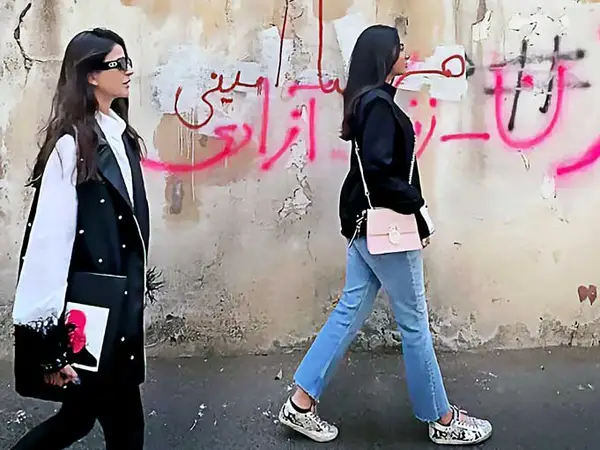A parliament committee in Iran has passed a hijab bill proposing to confiscate up to 10 percent of celebrities' assets and incomes if they violate hijab rules.
Hardliners on social media support the severe punishments, aiming to deter celebrities and influencers from defying hijab rules.
Hossein-Ali Haji-Deligani, a former high-ranking Revolutionary Guards (IRGC) officer and hardline lawmaker in the parliament's judicial committee, described the bill as considering any action that weakens the family, including nudity, immorality, unveiling, and inappropriate clothing, as a crime. The bill defines "nudity" as appearing in public in clothing considered nude by social norms and will be punishable by a cash fine of 1 to 1.5 billion rials and a prison term of six months to ten years.
Haji-Deligani emphasized that the bill, named "Protection of Family Through Promotion of Hijab and Chastity Culture," includes measures against individuals “connected with foreign governments” and “media outside Iran” promoting nudity, immorality, unveiling, and inappropriate dressing with heavy sentences.
This was a clear reference to regime opponent and critical media, such as Iran International, the BBC Persian Service and others.
Since March, hardliners have attempted to end women's increasing defiance of compulsory hijab and reclaim lost ground, but their efforts have been unsuccessful. The draft bill, jointly prepared by the government and judiciary, faced strong criticism from hardliners for its perceived leniency towards unveiling.
Apart from unveiling, the bill also targets individuals who confront citizens in public, use violence, and threaten unveiled women. Radical clerics have incited citizens to take the law into their own hands as a moral duty.
If approved, adherence to hijab laws would become a criterion for employment in public or private organizations in the future. Clothing that reveals the neck, arms above the wrist, and legs above the ankles will be considered "inappropriate clothing" and will be punishable by a cash fine of up to 500 million rials ($1,000) for the first infringement.
Not covering the head will also be punishable by a cash fine of 240 to 500 million rials for the first instance and up to 1.5 billion rials if repeated more than four times.
The hijab bill also bans taking photos or videos of police while enforcing hijab, but details of proposed punishments have not been made public yet.
Female employees and visitors are still sometimes inspected by female inspectors before entering government buildings to ensure compliance with regulations regarding their tunic, pants, and headscarves or Maghna'e (pullover headscarf with stitched front).
In the first two decades of the Islamic Revolution, inspectors also ensured women's hair did not show from under their headscarf or Maghna'e, and they did not wear makeup, nail polish, or "inappropriate accessories." Clothing generally had to be black, brown, navy, gray, or beige and very loose-fitting.
Over the years, the rules were relatively relaxed depending on which political faction was in power, and some makeup and a little color in clothing became more acceptable.
In July 2022, after weeks of harsh measures on the streets, President Ebrahim Raisi ordered all government entities to strictly implement a “chastity and hijab” law approved by the Supreme Cultural Revolution Council under hardliner Mahmoud Ahmadinejad in 2005.
Shortly after, the death of 22-year-old Mahsa Amini in the custody of hijab enforcers fueled protests that spread throughout the country.
